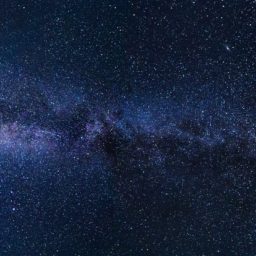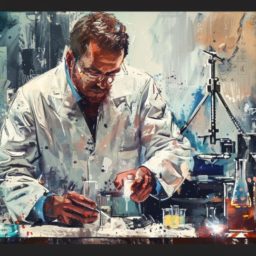
The greatest scientific discovery was the discovery of ignorance. Once humans realised how little they knew about the world, they suddenly had a very good reason to seek new knowledge, which opened up the scientific road to progress. | Yuval Noah Harari Continue reading The Greatest Scientific Discovery Was the Discovery of Ignorance Yuval Noah Harari

Science is more than a body of knowledge. It’s a way of thinking. A way of skeptically interrogating the universe with a fine understanding of human fallability. If we are not able to ask skeptical questions, to interrogate those who tell us that something is true, to be skeptical of those in authority, then we’re … Continue reading The Power of Skepticism Carl Sagan

In this book Enlightenment Now, cognitive scientist Steven Pinker assesses the human condition in the third millennium and urges us to step back from the gory headlines and prophecies of doom, which play to our psychological biases. Instead, follow the data: In seventy-five graphs, Pinker shows that life, health, prosperity, safety, peace, knowledge, and happiness … Continue reading Enlightenment Now: the Case for Reason, Science, Humanism, and Progress by Steven Pinker (2019)

Reason tells us that political deliberation would be most fruitful if it treated governance more like scientific experimentation and less like an extreme-sports competition. | Steven Pinker Continue reading Treating Governance Like Scientific Experimentation Steven Pinker

Transcript My feeling, Charlie, is that pseudoscience, superstition, new-age so-called beliefs, and fundamentalist zealotry are not new. They’ve been with us as long as we’ve been human. However, we now live in an age driven by science and technology, with formidable technological powers. Science and technology are propelling us forward at accelerating rates. If we—the … Continue reading Carl Sagan – Prophetic Last Interview Carl Sagan (1995)

Steven Johnson is an American popular science author and media theorist. 5 Minute Life Lessons with Steven Johnson WebsiteSteven JohnsonWikipediaSteven JohnsonTwitter@stevenbjohnsonYouTubeSteven JohnsonGoogleSteven Johnson Twitter Tweets by Steven Johnson Books: Steven JohnsonDid Coffee Fuel the Age of Enlightenment? Steven Johnson (2009)Steven Johnson Popular science authorWhere Good Ideas Come From Steven Johnson (2010)Videos: Steven JohnsonDid Coffee Fuel … Continue reading Steven Johnson Popular science author

Karl Popper, the great philosopher of science, once divided the world into two categories: clocks and clouds. Clocks are neat, orderly systems that can be solved through reduction; clouds are an epistemic mess, “highly irregular, disorderly, and more or less unpredictable.” The mistake of modern science is to pretend that everything is a clock, … | Jonah Lehrer Continue reading Clouds Not Clocks Jonah Lehrer

Science curiosity is a desire to seek out and consume scientific information just for the pleasure of doing so. People who are science-curious do this because they take satisfaction in seeing what science does to resolve mysteries. That is different from somebody who would show interest in scientific information because they had a specific goal … | Dan Kahan Continue reading Science Curiosity Is a Desire to Seek Out and Consume Scientific Information Dan Kahan

AustraliaAustriaBrazilCanadaChinaCzech RepublicEgyptFranceGermanyGlobalIndiaItalyJapanMexicoNetherlandsPolandSaudia ArabiaSingaporeSpainTurkeyUAEUnited KingdomUnited States As an Amazon Associate, I earn a small commission when you purchase a book via this site. Enlightenment Now: the Case for Reason, Science, Humanism, and Progress Fierce Conversations: Achieving Success at Work & in Life, One Conversation at a Time Tags: culture (23) | evolution (29) | … Continue reading Evolutionaries: Unlocking the Spiritual and Cultural Potential of Science’s Greatest Idea Carter Phipps (2012)

Science is not only compatible with spirituality; it is a profound source of spirituality. | Carl Sagan Continue reading Science Is a Profound Source of Spirituality Carl Sagan

1. It is easy to obtain confirmations, or verifications, for nearly every theory–if we look for confirmations. 2. Confirmations should count only if they are the result of risky predictions; that is to say, if, unenlightened by the theory in question, we should have expected an event which was incompatible with the theory–an event which would have refuted the theory. 3. Every ‘good’ scientific … | Karl Popper Continue reading Science as Falsification Karl Popper

For to say that, assuming the earth moves and the sun stands still, all the appearances are saved better than with eccentrics and epicycles, is to speak well; there is no danger in this, and it is sufficient for mathematicians. But to want to affirm that the sun really is fixed in the center of the heavens and only revolves around itself (i.e., … | Cardinal Bellarmine Continue reading Assuming the Earth Moves and the Sun Stands Still Cardinal Bellarmine (1615)

WikipediaCarl SaganYouTubeCarl SaganGoogleCarl SaganBooks: Carl SaganCarl Sagan American astronomer, planetary scientist, cosmologist, astrophysicist, astrobiologist, author, and science communicator.Carl Sagan – Prophetic Last Interview Carl Sagan (1995)Carl Sagan’s Dragon Carl SaganI Have a Foreboding Carl SaganScience Is a Profound Source of Spirituality Carl SaganThe Power of Skepticism Carl SaganThe Rise of Technical Civilizations Carl SaganQuotations: Carl … Continue reading Carl Sagan American astronomer, planetary scientist, cosmologist, astrophysicist, astrobiologist, author, and science communicator.

AustraliaAustriaBrazilCanadaChinaCzech RepublicEgyptFranceGermanyGlobalIndiaItalyJapanMexicoNetherlandsPolandSaudia ArabiaSingaporeSpainTurkeyUAEUnited KingdomUnited States As an Amazon Associate, I earn a small commission when you purchase a book via this site. People: David BohmDavid Bohm Physicist & AuthorPosts: David BohmDialogue Dialogue is a disciplined form of conversationWhat Is a Real Conversation? There is more to conversation than just talking or exchanging messagesBooks: … Continue reading Science Order & Creativity by David Bohm, David Peat

Introduction: Two Pillars of Truth The Provisional Nature of Scientific Knowledge Close Pop-up all posts in this chapter What’s the Vibe? Please be patient as this may take up to a minute to load… Close Understanding the scientific method is crucial for navigating the complexities of the natural world. Many people struggle with science because … Continue reading The Scientific Method The backbone of modern science

The Scientific Method Understanding Scientific Terms Close Pop-up all posts in this chapter What’s the Vibe? Please be patient as this may take up to a minute to load… Close Scientific knowledge is always open to change and revision. This provisional nature of knowledge can be misunderstood as a flaw in the scientific method, leading … Continue reading The Provisional Nature of Scientific Knowledge Understanding science as an ongoing process

Congruence, Coherence, and Contingent Truth The Roots of the Scientific Method Close Pop-up all posts in this chapter What’s the Vibe? Please be patient as this may take up to a minute to load… Close Science aims to uncover the truths of the natural world through careful observation and experimentation. However, it’s essential to acknowledge … Continue reading The Fallibility of Science Understanding the limits and strengths of science

The Scientific Method for Everyday Life Recognising New Age Mumbo Jumbo Close Pop-up all posts in this chapter What’s the Vibe? Please be patient as this may take up to a minute to load… Close Misinformation and disinformation are common on the web, often overshadowing crucial facts. Pseudoscience, in particular, masquerades as legitimate science without … Continue reading Pseudoscience and Its Dangers Misinformation and its impact on society

Pseudoscience and Its Dangers The Socratic Method Close Pop-up all posts in this chapter What’s the Vibe? Please be patient as this may take up to a minute to load… Close Much like pseudoscience, New Age beliefs and practices are widespread and often presented in confusing or meaningless terms, which can mislead people into adopting … Continue reading Recognising New Age Mumbo Jumbo Understanding and avoiding deceptive New Age ideas

How Beliefs Shape Reasoning Discrediting People ** Close Pop-up all posts in this chapter What’s the Vibe? Please be patient as this may take up to a minute to load… Close Motivated reasoning is where we look for arguments in favor of conclusions we want to believe, regardless of the evidence. This is a primary … Continue reading Science Curiosity A desire to seek out and consume scientific information for pleasure








